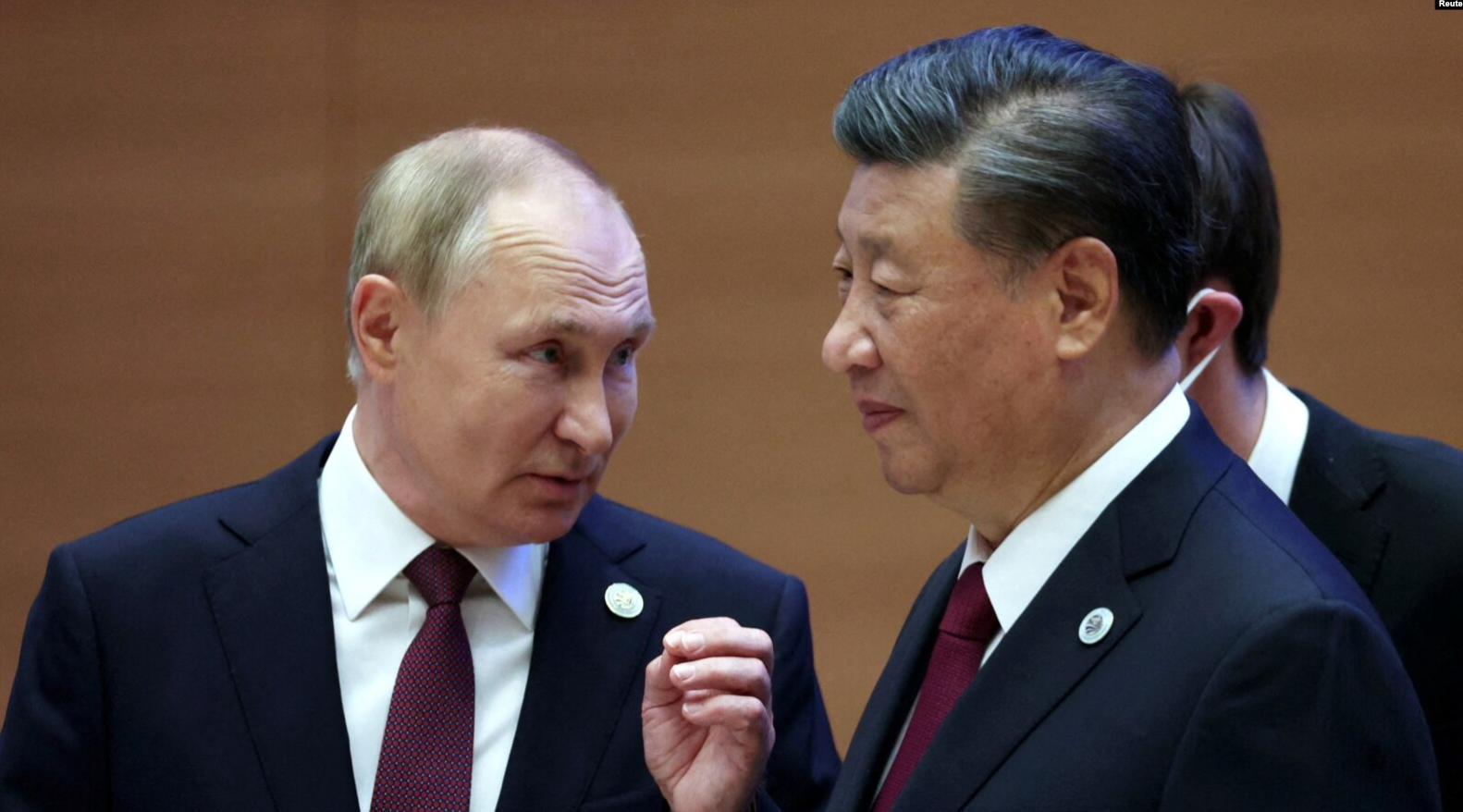WHITE HOUSE: The United States this week released its National Security Strategy (NSS), a 48-page document that lays out what President Joe Biden considers the country’s gravest challenges and how his administration plans to navigate them at home and abroad.
The congressionally mandated NSS describes a Biden doctrine that is both ideological and pragmatic — naming geopolitical foes China and Russia within his “struggle between autocracies and democracies” world view, while intending to work with nations of any stripe to address the pandemic, climate change, inflation and other global threats.
The strategy argues that at the onset of what Biden calls this “decisive decade,” there is a narrow window of opportunity to deal with shared transnational challenges, even within current great power rivalries, to advance U.S. interests and set the world on a path to a brighter future.
“The United States will lead with our values, and we will work in lockstep with our allies and partners and with all those who share our interests,” Biden said in his foreword. “As the world continues to navigate the lingering impacts of the pandemic and global economic uncertainty, there is no nation better positioned to lead with strength and purpose than the United States of America.”
The NSS lays out a three-pronged plan for his administration to do so: making domestic investments in industry, innovation, education, health care and democracy; mobilizing alliances and coalitions to enhance collective influence and shape the rules of the road; modernizing and strengthening the U.S. military.
Strategic challenges at end of post-Cold War era
The administration identifies two main strategic challenges. The first is the competition between major powers in shaping the next global order as the world transitions away from a post-Cold War era where the U.S. is the only hegemon. The second is how to work with allies and adversaries alike to deal with transnational problems, including climate change, food insecurity, communicable diseases, terrorism, energy shortages and inflation.
“We have come to a point where we can and simply have to tackle both on an equal plane — geopolitical competition and shared transnational challenges — so we are building a strategy fit for purpose, for both competition we cannot ignore and global cooperation without which we cannot succeed,” said White House national security adviser Jake Sullivan, as he laid out the NSS in an event hosted on Wednesday by Georgetown University and the Center for a New American Security.
Moscow and Beijing are singled out as “revisionist authoritarian powers” — non-democratic actors whose goal is to change the global order and pose a threat to international peace and stability by “waging or preparing for wars of aggression” — a reference to Russia’s invasion of Ukraine and China’s military buildup in the South China Sea and its threats to Taiwan. China considers Taiwan a wayward province and has not ruled out an invasion.
The countries are also singled out for “actively undermining the democratic political processes of other countries, leveraging technology and supply chains for coercion and repression, and exporting an illiberal model of international order.”
Even as it calls out these behaviors, the NSS emphasizes that democracies and autocracies can cooperate, said Stacie E. Goddard, who teaches global power politics at Wellesley College in Massachusetts.
“The problem, the NSS claims, is not that China and Russia are not democracies,” Goddard told VOA. “The problem is that they are undercutting some basic rules that allow for order in international politics.”
Those rules, Sullivan said, include the principles of sovereignty.
“Many countries that do not have democratic institutions are on the side of defending and upholding the terms and principles of the U.N. Charter,” he said, pointing to the overwhelming vote at the United Nations this week to reject Russia’s annexation of Ukraine.
Discrepancy on respecting sovereignty
Critics noted the discrepancy between the administration’s rhetoric of leading the global struggle to preserve respect for sovereignty, territorial integrity and the prohibition against acquiring territory through war, and the actual policies it pursues on the ground, most notably in relation to Israel.
The Biden administration has yet to overturn or even criticize former President Donald Trump’s 2019 decision to recognize Israel’s annexation of the Golan Heights, said Khaled Elgindy, senior fellow at the Middle East Institute. The Golan Heights was part of Syrian territory that was captured by Israel in 1967 and annexed in 1981.
“Nor has it called for an end to Israel’s occupation of the West Bank and Gaza Strip, as previous presidents have done,” Elgindy told VOA.
Critics also point to the recent decision by OPEC+, a group of oil-producing countries including members of the Organization of the Petroleum Exporting Countries, who despite intense lobbying from the administration, decided to cut production to raise the global price of oil and thus help finance Russian President Vladimir Putin’s war on Ukraine.
The NSS offers sound principles to guide policy in the Middle East, said Daniel B. Shapiro, distinguished fellow at the Atlantic Council’s Middle East Programs, from advancing regional integration, to ensuring partners’ and allies’ security from regional and external threats, to supporting improved human-rights conditions, all without overextending U.S. resources or taking its eye off global priorities.
“But the region moves fast, and even as those words were published, events challenged the ability to implement this strategy,” Shapiro said, adding that the Middle East “makes mincemeat of strategy papers, forcing choices upon policymakers that require the most painful tradeoffs of one essential priority against an equally valid one.”
Most consequential geopolitical challenge
While the document’s scheduled February 2022 release date was delayed by Russia’s invasion of Ukraine, the administration’s focus on China has not shifted — the NSS underscores that Beijing is the U.S.’s “most consequential geopolitical challenge.”
The NSS points out that Russia is a “source of disruption and instability globally” and poses an “immediate and ongoing threat to the regional security order in Europe.” It also calls out other smaller “aggressive and destabilizing” autocratic powers, namely Iran and North Korea. But it argues that no other country but China has “across the spectrum capabilities.”
“Russia’s aggression is a challenge, but it’s clear that this administration still sees China as the long-term problem for United States’ influence,” Goddard said.
The administration says Beijing uses its “technological capacity and increasing influence over international institutions to create more permissive conditions for its own authoritarian model, and to mold global technology use and norms to privilege its interests and values.”
The administration adds that Beijing uses its economic power to coerce countries, and rapidly modernizing its military while seeking to erode U.S. alliances in the Indo-Pacific and around the world.
At the same time, the administration acknowledges that China is “also central to the global economy and has a significant impact on shared challenges, particularly climate change and global public health” and that it’s possible to “coexist peacefully and share in and contribute to human progress together.”
The NSS’s release comes as the Chinese Communist Party gears up for its National Congress this weekend. President Xi Jinping is expected to be elected to a third term following a 2018 constitutional amendment. The gathering is set up to usher in “the great rejuvenation of the Chinese nation” by 2049.
“That rejuvenation, and aspects of China’s overall development, will be hampered by the Biden administration’s action,” said Robert Daly, director of the Wilson Center’s Kissinger Institute on China and the United States.
The administration’s message to the Chinese people, Daly told VOA, is that while the U.S. will not actively harm them, Washington will no longer aid in key aspects of their technological development because their government is a threat to a rules-based order.
The NSS, however, takes pain to reference Beijing as the People’s Republic of China, or PRC, instead of China, as previous strategies have done.
The administration is intent to keep the focus of U.S.-Sino rivalry on their government’s policies and strategies, Sullivan said. “It is very important to us that this not become Americans versus Chinese.”
VOA









Comment